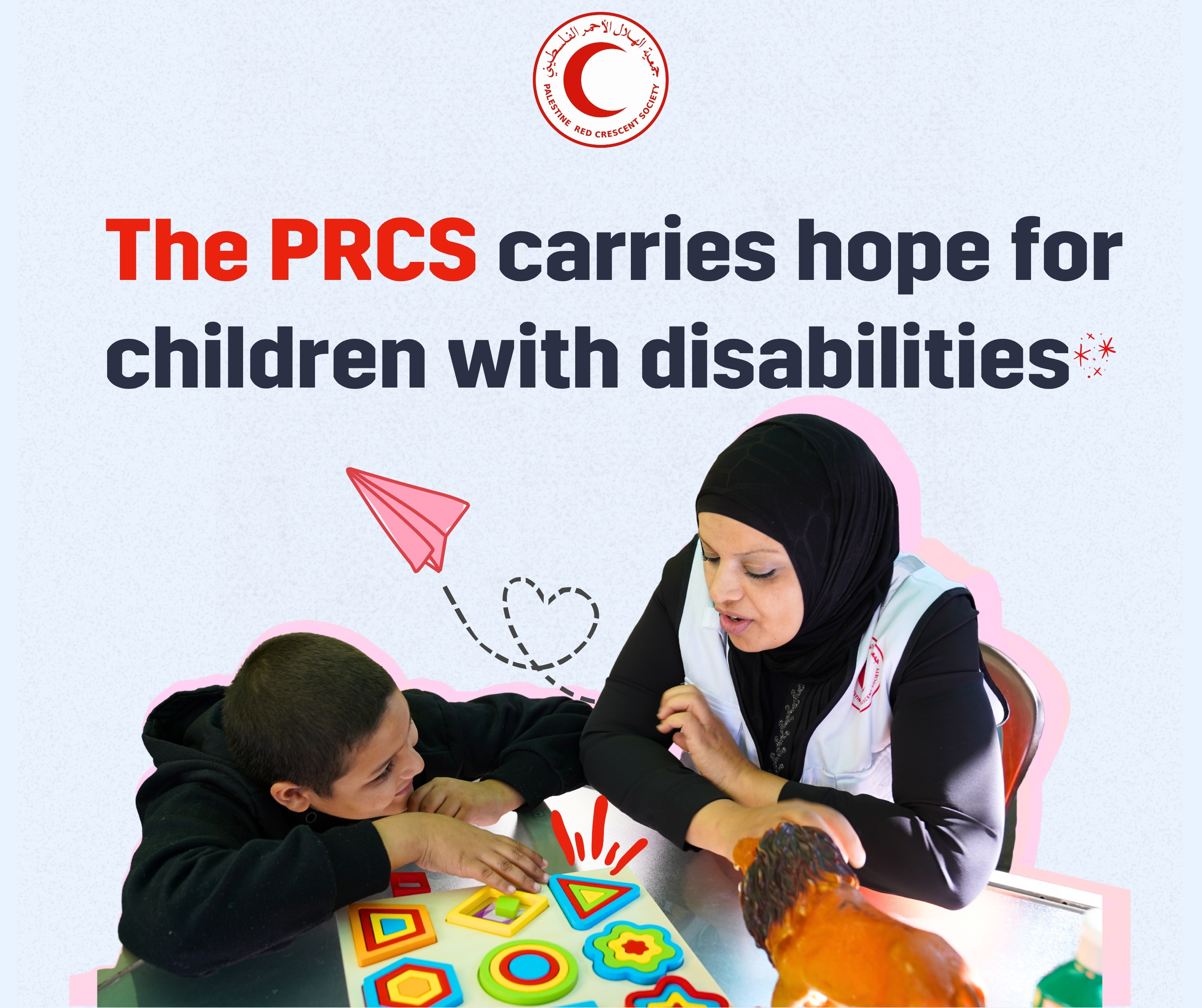They Have Come to Believe in Their Children's Right to Life

“This child with a disability has the right to life, play, education and health” the belief of parents in these words marks a sign of success for the Home Enrichment program which is a community-based initiative implemented by the Palestine Red Crescent Society (PRCS). The program targets children with intellectual disabilities, ranging from mild to very severe, through field visits to children living in marginalized areas.
Launched by PRCS in 2002, the Home Enrichment program aims to provide support and rehabilitation to children with intellectual disabilities in rural and remote areas. This is achieved through direct in-home interventions carried out by a specialized team, in coordination with municipalities and local councils. The program offers a variety of rehabilitation services focused on developing children’s abilities and promoting their social integration.
Enhancing Abilities
Sireen Abu Samaha, Head of the Psychological Counseling and Social Services at the PRCS rehabilitation Department and the coordinator of the program, said that the primary goal of the program is to enhance children’s abilities and empower them to take responsibility for themselves. The aim is to help children gradually reach a level where they can rely on themselves by becoming capable of performing basic daily life skills such as dressing, using the bathroom, and eating. These skills are developed and taught to the child through play-based activities that are enjoyable for children, cost-effective, and built around materials available in the local environment.
Integrating the Child Within the Family
According to Sireen Abu Samaha, the second goal is to integrate children with disabilities into their families and transform their parents into active partners in developing their child’s abilities and skills. Previously, many children had weak social connections with family members, which hindered natural interaction within the home environment and led to feelings of isolation.
To address this, the program works to strengthen family bonds by directly involving caregivers in the child’s skill-building process. Whether the caregiver is a mother, father, or a guardian, they receive training to teach essential life skills such as dressing, tying shoes, using eating utensils, and more through hands-on participation. This shared responsibility enhances both interaction and integration between the child and their nuclear and extended family.
Integrating the Child into the Community
The third goal is to integrate the child into the local community by forming friendship committees with peers from the child’s village. These committees consist of individuals from the surrounding environment such as neighbors or classmates especially if the child is enrolled in an inclusive school. Although building quick, trusting relationships and promoting acceptance of children with disabilities can be challenging, the program has made significant progress in shifting mindsets, attitudes, and perceptions. This success is largely attributed to school awareness campaigns and inclusive community activities specifically designed to support and integrate these children.
Therefore, it is the responsibility of the program team to initiate and gradually strengthen these committees to ensure the formation of strong, lasting relationships that support the child in various aspects of life.
In addition, Sireen Abu Samaha noted that raising community awareness and advocating for the rights of children with disabilities are among the strategic goals of the program. The program organizers believe that the community plays a key role in achieving successful and meaningful integration. The team works to raise awareness about the importance of respecting the rights of these children and strives to break down the misconceptions that may hinder their interaction with the society.
The interview is available at the following link: https://thisweekinpalestine.com/the-palestinians-lifeline-in-times-of-crisis/

